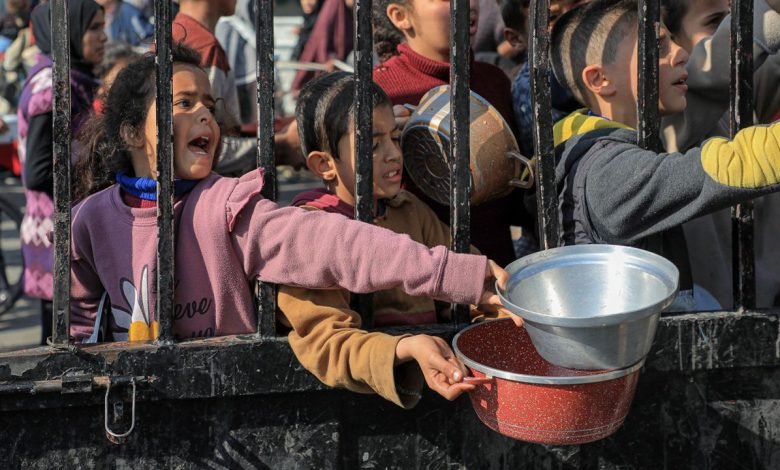
Jordan Daily – The Civil Society Organizations Coordination Committee “HIMAM” called on the international community—particularly the UN Security Council, the UN General Assembly, the State Parties to the Geneva Conventions, and the European Union—to take immediate and urgent steps to end the ongoing crimes in the Gaza Strip.
HIMAM affirmed that ending the Israeli aggression on Gaza and lifting the comprehensive blockade on civilians are urgent humanitarian and legal priorities that cannot be delayed.
It called for holding the Israeli occupation authorities accountable for the documented crimes, foremost among them the use of starvation as a systematic weapon, which constitutes a crime of genocide and a crime against humanity under international law.
HIMAM also emphasized the need to provide urgent and effective international protection for Palestinians, ensure the unrestricted flow of humanitarian aid, and put a definitive end to Zionist colonial policies in the occupied Palestinian territories.
HIMAM clearly expressed its support for the official Jordanian position rejecting the aggression on Gaza and calling for its immediate end, and its rejection of starvation as a weapon in this aggression, in accordance with international humanitarian law and international human rights instruments.
HIMAM announced its categorical rejection of the so-called “Gaza Humanitarian Foundation,” which was promoted as an alternative humanitarian aid corridor but, in reality, served as a death trap aiming to legitimize the blockade and circumvent international law.
In a statement, HIMAM strongly condemned the Israeli occupation authorities’ use of starvation as a collective weapon against the people of Gaza, as part of an aggression that has lasted over twenty months. HIMAM stated this is an extension of a colonial system aiming to uproot the Palestinian people and dismantle the foundations of their existence.
HIMAM confirmed that Gaza is witnessing a comprehensive humanitarian collapse, with more than two million people—including hundreds of thousands of children, women, and the elderly—facing real famine. This comes amid a complete deprivation of basic life necessities, deliberate destruction of infrastructure—including hospitals, shelters, and aid centers—and a parallel policy of restricting and preventing the entry of food and medical supplies.
HIMAM stressed that this policy is not only a blatant violation of basic moral principles but also a direct breach of the Fourth Geneva Convention, which prohibits collective punishment and the use of food as a weapon of war, and obliges the occupying power to ensure humanitarian supplies to the population under its control.
HIMAM reminded that the right to food is guaranteed under the International Covenant on Economic, Social and Cultural Rights, and that denying people access to food—and using hunger as a tool of pressure, displacement, or subjugation—is a fully constituted crime that meets the legal standards of genocide under the Rome Statute of the International Criminal Court.
HIMAM warned that continued international silence, or limiting action to humanitarian aid without accountability, amounts to complicity in the crime, entrenches impunity, and threatens the integrity of the entire international legal system.
The organization stressed that the famine in Gaza threatens not only the right to life but undermines all other basic rights, including dignity, health, education, and development—posing a long-term catastrophe for future generations.
It reiterated that these policies are part of a broader Zionist colonial project based on forced displacement, settlement expansion, resource exploitation, and the dismantling of Palestinian society. It affirmed that ending these practices, lifting the blockade, and ending the occupation are not just political demands but urgent legal and moral responsibilities incumbent upon the entire international community.
HIMAM concluded its statement by affirming that the world today faces a pivotal moment in its modern history: to either uphold the principles upon which the international human rights system was founded, or to surrender to complicity, silence, and double standards.
HIMAM declared: It is time for states, international institutions, and free peoples to act—stand with the victims, not the perpetrators; with the law, not impunity; and with human dignity, which is indivisible and non-negotiable.

